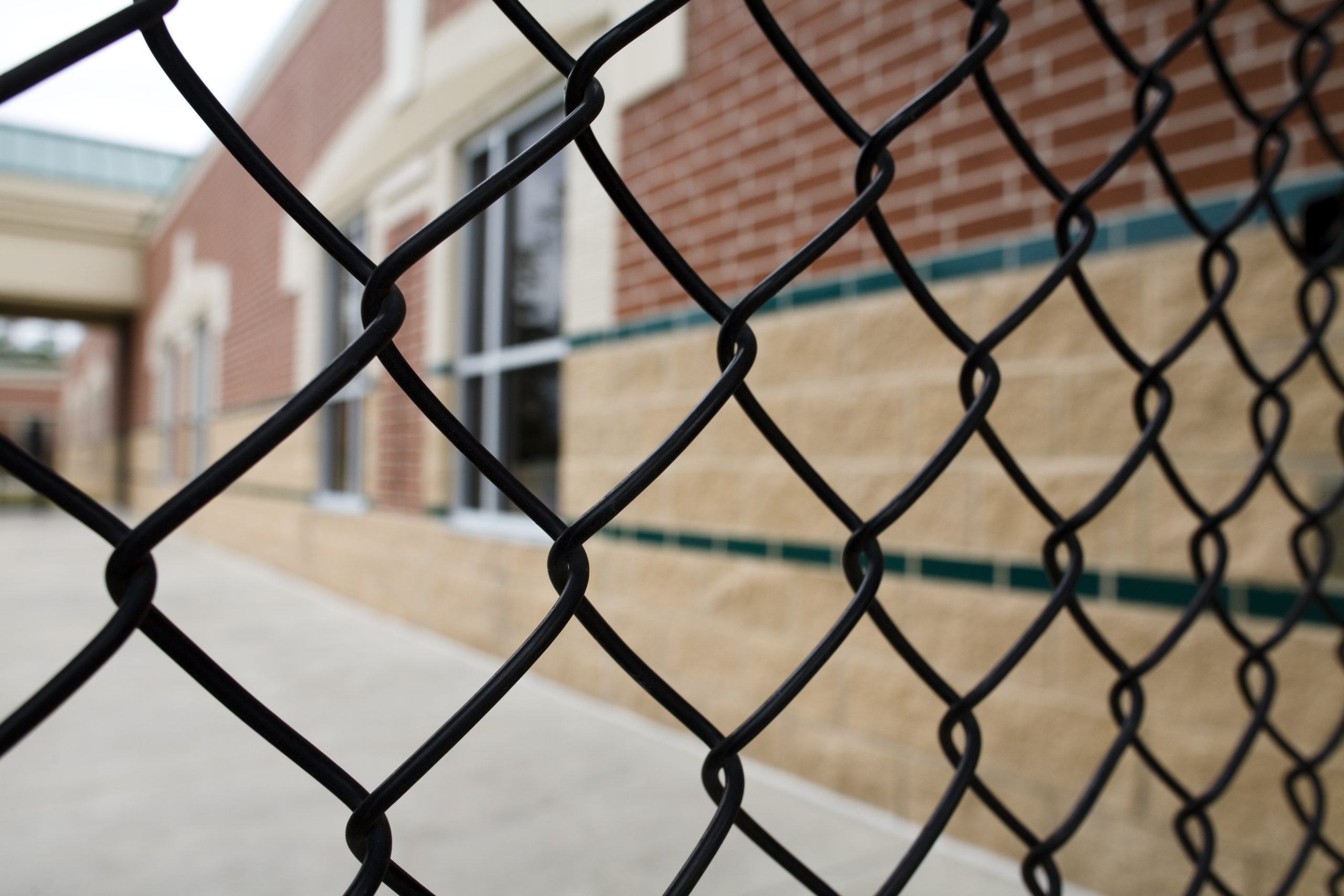2021–22 Education Budget Trailer Bill Summary
On Monday, July 5, the Legislature introduced this year’s education omnibus budget trailer bill (Assembly Bill/Senate Bill 130), containing greater detail on what California’s schools can expect from the 2021–22 Budget Act. Budget trailer bills address remaining points of disagreement and topics needing further clarification from the annual budget act. This year’s budget trailer bill is especially significant since it addresses a number of important and unresolved issues from the state budget and determines how to allocate the remainder of 2021–22 funds stemming from higher-than-expected state revenues and an infusion of federal monies.The bills will be up for a vote on July 8.
“We appreciate that the budget trailer bill contains much needed clarification on the state budget that was adopted at the end of June and that it addresses many areas of need in K-12 education. At the same time, the heavy reliance on one-time funding to create new programs and expand old ones — especially the use of short-term funds for long-term staffing and programmatic purposes — presents major sustainability concerns,” said CSBA President Dr. Susan Heredia. “This legislation expands transitional kindergarten and after-school programs while dramatically increasing the scope of independent study with new requirements and expectations, making it more challenging for schools to provide virtual learning opportunities for students in the coming school year. We hope the state will address these issues and come up with a long-term funding solution so local educational agencies can properly plan and maintain new programs and services without having to borrow from or deplete existing ones.”
Independent Study
The bill includes several new provisions and amendments to the existing Independent Study Program:
- Most notably, local educational agencies are required to offer independent study in the 2021–22 school year and may contract with a county office of education or complete an inter-district transfer to provide it.
- Under specified conditions, such as financial hardship, an LEA may seek a waiver.
- While already allowable under current law, the bill provides explicit authority to participate in independent study if a student’s health would be put at risk, as determined by their parent or guardian.
- As a condition of apportionment, LEAs must adopt and implement board policies that:
- Require a level of satisfactory educational progress that allows a student to remain in an independent study program, with criteria such as pupil achievement and engagement, completion of assignments, learning required concepts, and progressing toward completion of the course of study or specific course.
- Provide content aligned to grade-level standards and equivalent to in-person instruction, including access to courses for graduation and meeting college entry requirements, teacher qualifications and ratios.
- Include procedures for tiered re-engagement for students who are not generating attendance for three or more school days, or 60 percent, of instructional days in a school week, or are violating the independent study agreement.
- Include a plan for specified synchronous instruction requirements by grade level.
- Include a plan to transition pupils when families wish to return to in-person instruction.
- Current law requires a completed written agreement between a student, parent or guardian and the LEA in order to participate in independent study. This bill adds various new requirements such as reporting academic progress, details on communications with parents/guardians, providing access to devices and connectivity, allowance for electronic signatures, a signature deadline of 30 days from the first day of instruction, notification to all parents/guardians of the availability to enroll in in-person instruction or independent study for 2021–22, and a student/parent/educator conference prior to signing the agreement.
- The bill also provides clarity on new requirements for daily live and synchronous instruction by grade level. Specifically, LEAs will be required to provide daily synchronous instruction for kindergarten through grade 3, daily live interaction and weekly synchronous instruction for grades 4 through 8, and weekly synchronous instruction for grades 9 through 12.
- Documentation of live and synchronous instruction is required for each school day that independent study is provided. Any student who does not participate in independent study on a school day must be documented as non-participatory for that day. LEAs are required to maintain either written or computer-based evidence of student engagement such as a grade book or summary document for each class that lists all assignments, assessments, and associated grades.
- Although current independent study programs are already audited, the bill also directs the State Controller to add the new provisions to the state audit guide.
Universal TK Implementation
The trailer bill provides further detail on the implementation of universal transitional kindergarten. Specifically, it:
- Provides the operative language on expanding TK, which would begin with the 2022–23 school year. It expands TK age eligibility in two-birth month increments over a period of four years, resulting in universal transitional kindergarten for all children who are four years of age in the 2025–26 school year.
- Requires TK programs to operate with a teacher–student ratio of 1:12 in 2022–23 and transitioning to a teacher–student ratio of 1:10 by the 2023–24 school year, which is made contingent on a budget appropriation.
- Specifies that age eligibility for a TK program does not impact family eligibility for other child care and preschool programs and authorizes California State Preschool Programs to offer wraparound child care services for eligible TK and kindergarten programs.
- Establishes the Pre-Kindergarten Planning and Implementation Grant Program, which provides $300 million in one-time Proposition 98 for the California Pre-Kindergarten Planning and Implementation Grant Program.
- $200 million is reserved for LEAs to create or expand existing programs.
- $100 million will be provided through competitive grants to increase the number of highly qualified preschool and kindergarten teachers and administrators.
Expanded Learning Opportunities Grant
The bill provides $753.1 million in one-time Proposition 98 funding to establish the Expanded Learning Opportunities Grant Program to provide students access to after school and summer school or intersessional instruction opportunity programs.
- When combined with funds allocated in the Budget Act, it provides a total of $1.75 billion in the 2021–22 fiscal year.
- The intent is to expand the program to provide up to $2,500 per unduplicated pupil with the total cost, conditional on future budget allocations, to reach $5 billion in annual funding.
- LEAs would be required to prioritize enrollment at schools in low-income communities, as determined by the number of students eligible for free and reduced-price meals, but permits LEAs to serve all students and grade levels.
- For the 2021–22 school year, LEAs, upon condition of receipt of funds, would be required to provide after-school programs for students in TK through sixth grade on school days and 30 non-school summer school or intersessional days, and then to any student who requests it by the 2022–23 school year.
A–G Completion Improvement Grant Program
The budget provides $547 million to fund three grant programs to help increase the number of high school pupils, particularly unduplicated pupils, who graduate from high school with A-G eligibility: A-G Access Grants, A-G Success Grants and A-G Learning Loss Mitigation Grants.
- A-G Access Grants: $300 million will be distributed in the budget year in an equal amount per unduplicated pupil enrolled in grades 9 to 12 for the 2020–21 fiscal year to LEAs with an overall A-G completion rate of less than 67 percent. Otherwise eligible LEAs that receive concentration grant funding will receive not less than $75,000.
- A-G Success Grants: $100 million will be distributed in equal amount per unduplicated pupil enrolled in grades 9 to 12 for the 2020–21 fiscal year to LEAs with an overall A-G competition rate of 67 percent or higher. Otherwise eligible LEAs that receive concentration grant funding will receive not less than $75,000.
- A-G Learning Loss Mitigation Grants: $147 million will be distributed in the budget year in an equal amount per unduplicated pupil enrolled in grades 9 to 12 for the 2020–21 fiscal year to LEAs. Otherwise eligible LEAs that receive concentration grant funding will receive not less than $75,000.
- A-G Access and Success Grants shall be used toward activities that include: professional development opportunities for teachers, administrators, and counselors; advising plans; tutoring programs; expanding access to coursework; advanced placement and international baccalaureate fees.
- A-G Learning Loss Mitigation Grants are intended to create opportunities for pupils who received a grade of D or F in A-G courses in the spring semester for 2020 or the 2020–21 school year to retake those courses.
Ethnic studies
The trailer bill details funding to develop and expand ethnic studies course offerings as well as for professional development and resources to support LEAs:
- $50 million in 2021–22, allocated on a per-pupil basis to LEAs serving pupils in grades 9 to 12, to support the creation or expansion of ethnic studies course offerings. Funds may be used to support curriculum and instructional resources, professional development, or other activities that support course offerings.
- $5 million in 2021–22 to the California Department of Education to contract with a county office of education or consortium of COEs to provide professional development and resources to support LEAs offering new or expanded ethnic studies courses. The funding is intended to support regional training for teachers, administrators and paraprofessionals, and to provide access to an online repository of resources for educators to support the implementation of the Ethnic Studies Model Curriculum.
Career Technical Education
The bill provides an additional $150 million, for a total of $300 million in ongoing Proposition 98 funding for the Career Technical Education Incentive Grant program.
Community schools
The 2021–22 budget provides $3 billion in one-time funding for the Community Schools Partnership program to establish new, and expand existing, community schools that are supported by LEAs that will coordinate services and manage learning networks.
- Funding is provided for a combination of grants including planning and implementation grants for new schools and coordination grants to expand existing programs.
- There is a match requirement for both the planning and implementation grants equal to one-third of the grant amount. Coordinating grants have a 1:1 match requirement.
- The State Superintendent of Public Instruction shall update the application process and administration plan for selecting grant recipients by Nov. 15, 2021.
The budget also includes funding to create up to five regional technical assistance (TA) centers to support LEAs through the application process and beyond. The TA centers will provide resources and best practices to assist in getting community schools fully operational.
Broadband
The trailer bill provides $5.2 million in one-time General Fund monies, available over a three-year period, for the Broadband Infrastructure Grant Program for identified broadband connectivity solutions.
Teacher recruitment, retention and development
The education trailer bill includes a number of teacher recruitment, retention and development items, including:
- $1.5 billion in General Fund monies to establish the Educator Effectiveness Block Grant. The grant would be administered by the SPI who would provide these funds on a competitive basis to LEAs for the professional development opportunities for teachers, administrators and paraprofessionals.
- $350 million in General Fund monies to the California Commission on Teacher Credentialing (CTC) for the Teacher Residency Grant Program. Funds would be provided through one-time grants to develop new or expand and enhance existing programs to assist schools facing significant teacher shortages, including special education, bilingual education, science, computer science, technology, engineering, mathematics, transitional kindergarten or kindergarten. Teachers would be expected to commit to teaching in a recipient school for at least four years with an additional year of teacher preparation.
- $250 million in one-time Proposition 98 funds, available over five years, for the National Board for Professional Teaching Standards Certification Incentive Program to support teachers in attaining a certification from the National Board for Professional Teaching Standards.
- $125 million in one-time Proposition 98 funds over a period of five years for the California Classified School Employee Teacher Credentialing Program to help classified employees become teachers and expand program eligibility to early childhood education program staff.
- Increased opportunities for prospective teachers to meet existing basic skills proficiency and subject matter proficiency test requirements in lieu of successful demonstration of completed and equivalent coursework. Specifically, it:
- Waives the basic skills proficiency test requirement if the applicant earns a letter grade of B or greater in qualifying coursework as determined by the CTC, or who demonstrates proficiency in basic skills through a portfolio of qualifying coursework.
- Permits a teaching candidate to demonstrate his or her subject matter competency for a multiple or single subject matter assessment through the completion of qualifying higher education coursework or portfolio of work, as determined by the CTC.
School nutrition
The bill details the requirement for LEAs, upon appropriation and beginning in 2022–23, to provide two meals free of charge each day for grades TK-12, regardless of a student’s eligibility to pay:
- The Department of Education will be required to provide reimbursement to LEAs that participate in the national school breakfast and lunch programs in an amount equal to the difference between the meals funded through the federal and state reimbursements and the meals served.
- Additionally, $120 million is provided for kitchen infrastructure upgrades to increase/improve access to fresh nutritious meals and $30 million is provided for food staff training.
Special education
The bill contains a number of provisions regarding special education, including:
- An increase in the special education base funding rate to a minimum of $715 per unit of average daily attendance for each Special Education Local Plan Area (SELPA). SELPAs with a base rate above the new minimum will receive a cost-of-living adjustment.
- $100 million in one-time Proposition 98 funds to support LEAs in conducting dispute prevention and voluntary alternative dispute resolution activities to prevent and resolve special education disputes before they reach the status of a full due process claim, in order to address the potential increases in due process claims arising from COVID-19. These funds will be allocated to SELPAs on a per-pupil basis based on pupils aged 3 to 22 with exceptional needs.
- $450 million in one-time Proposition 98 funds to SELPAs for purposes of providing learning recovery support to pupils, associated with school disruptions stemming from the COVID-19 pandemic, as COVID-19 has left districts facing an acute need to provide compensatory education services to special education students as required under the Individuals with Disabilities Education Act. Funds will be allocated to SELPAs on a per-pupil basis, based on pupils with exceptional needs aged three to 22.
- Changes to how funding is provided to school districts for the Special Education Early Intervention Preschool Grant.
Previously, funding was based on the number of preschool students with special needs that resided in the district. That, however, was not a number that could be readily or accurately counted.
- The budget specifies that the funding provided will be proportional to the total number of pupils with exceptional needs in first grade that are residing in the district. The Special Education Preschool funds shall be supplemental to existing funds and shall be used to provide early education services and supports for special education students aged birth to five.
- An expansion of the Family Empowerment Centers on Disability to regions in the state that do not currently have a center and makes changes to the grant program.
- An update to the out-of-home care formula that provides funding for out-of-home placements based on one rate for foster youth ($1,509) and a different rate for Short-Term Residential Therapeutic Programs ($14,603), and applies a cost-of-living adjustment in future years.
Charter schools
The trailer bill includes details on changes to charter school renewals and the moratorium on new nonclassroom-based charter schools. Specifically, it:
- Grants an indiscriminate two-year extension to all charter schools whose term expires on or between Jan. 1, 2022, and June 30, 2025. This provision would restrict an authorizer’s existing authority to non-renew an eligible charter school for academic, governance or fiscal issues. The only other option available to an authorizer to take action on serious charter school issues is through the revocation process, which requires a more stringent criteria for action.
- Extends by three years the current moratorium that prohibits the approval of a petition for the establishment of a new nonclassroom-based charter school. The bill would continue the moratorium through Jan. 1, 2025.
Register for the Budget Perspectives Workshops
CSBA is co-sponsoring Budget Perspectives Workshops in partnership with Capitol Advisors in counties across the state from July 12–19. Click here for more information and to register.





